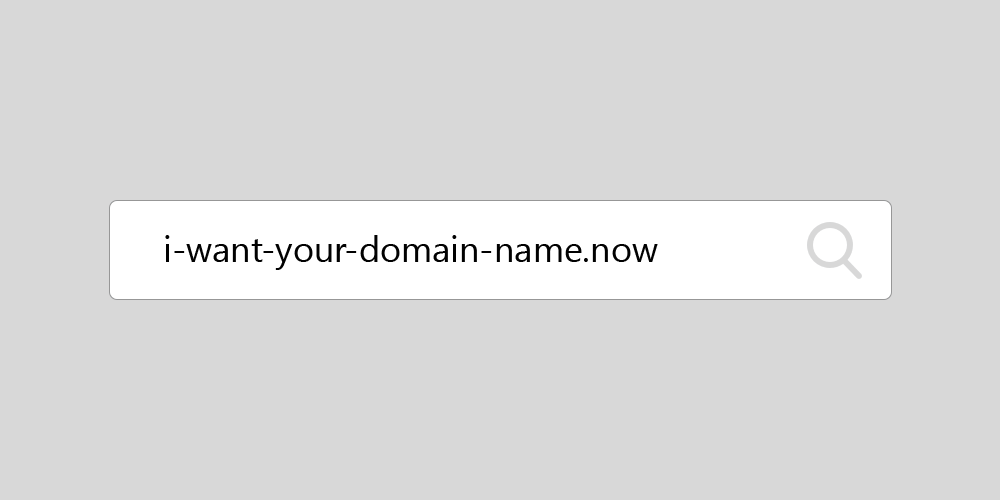Your domain is a part of your brand identity As a website owner, the last thing you probably expect, is having your domain name stolen.
Thousands of domain names get stolen every day, and many of them are sold at a high price to whoever want them. Never let yours be one of them.
You cannot afford to be on the list of people losing their domain names under avoidable circumstances. Domain names are often the very valuable assets that must be protected. If you lose your domain, your entire business could go down.
For that matter, you must avoid domain theft at any cost so that the asset you've invested in won't get stolen.
In order for you to know the ways to secure your domain, you need to know the various strategies online thieves employ. Understanding how they work, will help you take precaution measures to keep your domain safe.

Keep Records Accurate
Whenever there is a change of address, phone number, or email address that you’ve been using for domain name transfer communications, you should let your registrar know.
As an added precaution, make sure that you also update your emergency and business contact information. This way, your registrar will be able to contact you if any suspicious activity is found.
Wise In Choosing Registrar
There are many registrar to choose from. But for precaution, make sure that the registrar of your choice has been in business for a long time and is truthworthy.
Prices offered by registrars vary. To get a qualified registrar you can trust your domain to, you should look beyond the cost and find registrar that offers the best services and support. They should be able to provide more than the minimum registration and domain transfer services.
The registrar of your choice should also have a system that notifies you of a pending domain transfer and allows you some days to respond before the domain is actually moved. This way, you can ensure that the domain is not transferred without your knowledge.
Registrar should also have a way to notify you of changes in your registration record or ownership change requests. You may want to check with your registrar to know whether they have the option available, and give them the communication method that is best for you.
Registrars that provide additional security such as two-step authentication is an advantage.
Protect Your Registrant Information Private
You need guard your account information on your registrar. You should never give the login credentials to anyone except to authorized individuals that you trust. To make sure, re-check the credentials if at any circumstances the person leaves your company. Any details about the person should be removed.
As a precaution, your email address should not be the same as your username for your registrar account. Always create different username that is not the same as the contact email to prevent thieves guessing.
Lock Your Domain Name
To prevent theft, you can also ask your registrar to place your domain name under registrar lock. And if they support EPP (Extensible Provisioning Protocol), then they can help to add a second “lock,” the Authorization Information Code or authInfo.
This safety precaution makes it impossible to change your registration information and DNS configuration without your knowledge. Even yourself need to unlock your name before applying any changes.
Be Wary Of Phishing Emails
When extracting credentials on the web, phishing is one of hackers' best friend and unsuspecting victim worst enemy.
You may get emails from your registrar concerning payment, discounts or other offers. Sometimes, the emails include a link to log in into your registrar account. If your registrar is the one that is truly sending the emails, clicking on the links won't do any harm. But hackers can also impersonate your registrar by sending you phishing email with links and logos that look exactly like your registrar's.
To prevent anything bad to happen, it's wise to double check the link and the page before typing any of your credentials. It's always better to type your registrar's address directly to your web browser without clicking on the email links.
Separate Your Hosting Account From Your Domain
The more account you own, while they can be painful to manage, can indeed safe you some hijacking attempts. Some websites has their domain names and hosting registered under the same company. While this can be a convenience for you, but if ever your account gets compromised, hackers can get everything from you.
To prevent this from happening, you should always use separate providers for your domain registration and hosting.

Use Strong Password And Change It Regularly
The best passwords are those that are hard to guess by both humans and computers. Use the combination of any possible keys instead of making it long. And to add some safety, change your password frequently.
Hard to guess passwords include uppercase, lowercase, numbers and also special characters. Because passwords are case-sensitive, the combination of those will make your password difficult to guess.
Never use your name or any common names, dictionary words, birth dates, anniversary dates, etc. Hackers that have your identity can guess these pretty easily. If you trust your password to someone that works for you, always change that password after they leave.
Enable Privacy
Enabling privacy here is to enable Who.is privacy. This way, the contact details that are should be publicly available, won't be visible to anyone anymore.
One of the most common ways to get information about your website is by accessing Who.is. Domain thieves can easily extract information when the information is available for everyone on the web. If the details fall to the wrong hands, domain thieves can easily locate you and attempt phishing schemes.
Once you enable Who.is privacy, details like your name, email, address, phone number, etc., won't be visible to the public.
